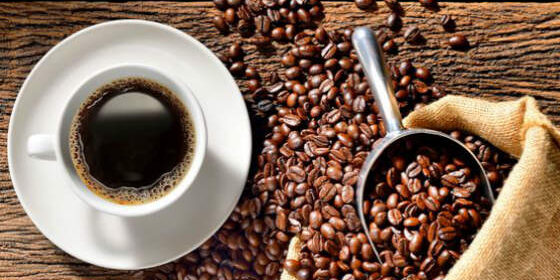Migraines are a health problem that affects many people’s lives. Around ten percent of the world’s population suffers from them, and women more so than men. Research even shows that migraines can run in families and that everyday things can trigger them.
Some people find that particular food or beverages bring about a migraine, or even stress, a lack of sleep, hunger, or bright lights. Everyone is different, which is what makes managing migraines that much harder.
However, one thing that researchers are now discovering is that two caffeinated beverages are not associated with migraine odds, but three could be.
According to a study published in the American Journal of Medicine, those who have three or more caffeinated beverage servings per day would be more likely to suffer from a migraine attack either on that day or the next. The dose and frequency play a role in this study too.
The research team, led by Elizabeth Mostofsky, ScD, analysed data from 98 adults who suffered from episodic migraines. Episodic migraines are around 14 headaches per month, and chronic migraines are defined as 15 or more per month.
Each study participant had to fill out an electronic diary twice-daily for six weeks. In it, they recorded when they drank caffeinated beverages, the timing of them, their lifestyle factors, and descriptions of the migraine attacks.
Researchers looked at the likelihood of migraines on the days they drank caffeine compared to the days they didn’t. At the same time, they were also looking at exercise patterns, the weather, and even sleep habits.
Through this data, researchers were able to determine that people who had more than three servings of caffeine per day were at higher risk of a migraine. That risk wasn’t any higher if they had two or fewer.
But It Can Also Cure Them
Caffeine is a complex beast. We now know that if you drink three or more caffeinated beverages, you have a higher risk of experiencing a migraine attack. However, caffeine can also be a headache remedy.
Headache pain is caused by blood vessels in your brain swelling, but caffeine can reduce that swelling. That’s why it has been used in emergency rooms in IVs for quick migraine relief. It can also work hand-in-hand with ibuprofen, aspirin, and acetaminophen, while also featuring as an ingredient in many headache relief medications too.
Common Migraine Triggers
While the research now shows that caffeine may trigger migraines in episodic migraine sufferers, there are other triggers of which to be aware. Some of these were touched on briefly above. Food additives such as MSG, some medications, weather changes, stress, and sensory stimuli can all play a part in migraine triggers.
Even processed foods, salty foods, and aged cheese have been known to bring about migraines. Eating well and focusing on your health and triggers may be able to prevent migraines.
Some people also get prewarning of an incoming migraine, with visual spots and light flashes, vision loss, facial weakness and numbness, speaking difficulties, pins and needles, and uncontrollable movements.
Many things can cause or trigger a migraine, but caffeine is most certainly one that appears more frequently. If you suffer from frequent headaches and migraines, then consider limiting your caffeine servings to one or two a day.





